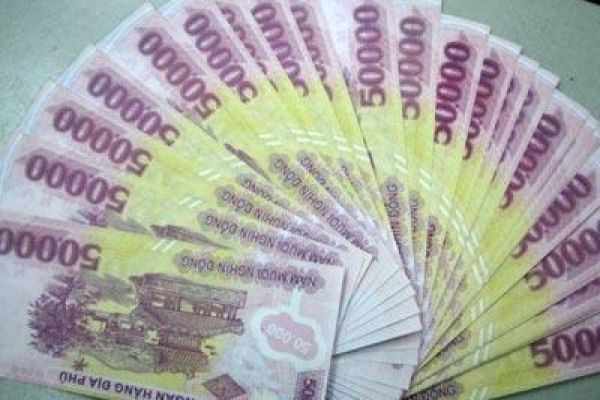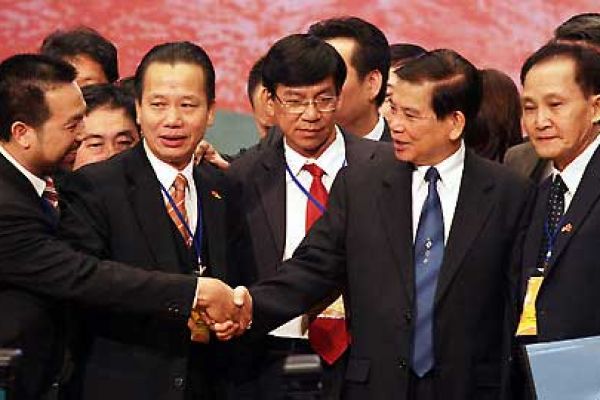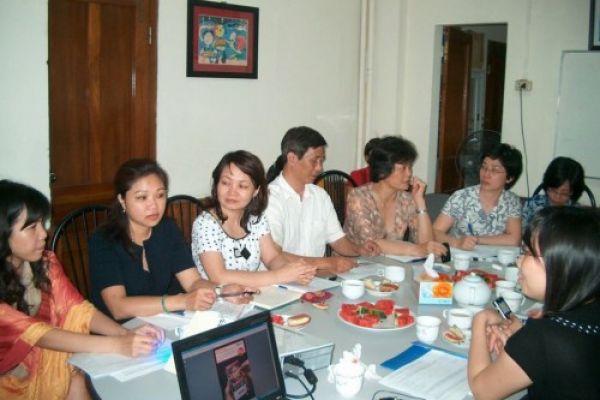Lots of Vietnameses in senior positions got there by virtue of their revolutionary or political credentials rather than their professional abilities.
The gap between Vietnamese office culture and Western corporate culture often seems impossible to bridge, according to several foreign executives who have set up operations in Vietnam.
They list a range of areas where problems arise for Vietnamese in their 30s and 40s who try to switch from a state position to a career with a foreign corporation. The most important of them, the executives say, are language, company loyalty, creativity, responsibility within an authority structure and out-of-date professional knowledge.
Far from despairing, however, foreign companies are focusing on the country's large number of college graduates.
Recently, Internationale Nederlanden Groep NV, a Dutch banking concern, announced openings for 12 positions in its representative office in Hanoi. The bank received 420 applications - from graduates of Hanoi Banking College, English majors and candidates from a variety of other backgrounds.
"Most likely, we will end up with someone who speaks good English but has no banking or accounting knowledge," said Jürg Vontobel, country manager for ING in Vietnam. "It is easier to educate somebody from scratch than to battle with the attitudes and out-of-date knowledge many of those with banking education are burdened with."
ING chose to call all the applicants in for an introductory test. "Many of these people will end up in important positions later, no doubt, and we don't want anyone to bear a grudge against us," Mr. Vontobel said.
Of the companies that have started up in Vietnam, banks have had the most need of white-collar workers. For many of them, staff training has meant adding an expensive education unit to their high overhead costs. ANZ Banking Group Ltd. of Australia ran a three-month training course for its 30 recruits before it opened its branch in Hanoi.
Representative offices of foreign corporations, which normally operate with a staff of one to 10 people, usually recruit employees through connections and private recommendations. Employees receive on-the-job training, with occasional study trips for the most promising ones.
One major American company hired a former tank driver from the Vietnamese army as its chauffeur but in less than a year promoted him to become the American representative's assistant and its main client contact.
"You are dealing with the best human material Vietnam has produced," said the American representative, who asked not to be named, citing company policy. "Forged by the hardships of war, poverty and discipline, and with a typical Vietnamese self-confidence, the man is hard- working and eager to learn. In Hanoi, you can find some of the people with the best moral fiber in the world."
Still, differences in culture between Western companies and Vietnamese staff create constant challenges.
One problem is corporate secrecy, which is virtually unknown in Vietnam but is important for companies and banks working in a competitive environment.
Another is paying commissions, a widespread practice in Vietnam that is not considered corrupt here but is not tolerated by most Western companies.
"We found that we had to add a couple of chapters to our handbook," said Susanne Kerkvliet, office administrator at ING in Vietnam. "It raised a few eyebrows back in Holland, but it is necessary to introduce some really basic principles here."
Company loyalty is still another. Having experienced no other employer other than the state for more than 15 years in the South and nearly four decades in the North, most Vietnamese regard corporate identity as a novel concept. Except in a few high-profile operations such as Vietnam Airlines, loyalty in Vietnam is reserved for individuals who are considered good leaders and teachers.
That serves to create a close-knit office culture in a small representative office, but problems may arise when the expatriate manager leaves, or when the operation expands rapidly, which is what most companies experience.
"I find that I have to use all of my managerial skills," said Maureen Flanagan, who represents Unisys Corp. in Vietnam and has five Vietnamese and three expatriate employees. "The most important is to encourage people a lot and use humor to resolve conflict. Jokes work. It means that my staff can yell at me, too."
Vu Minh Tuan, twenty-five year old, a sales representative for Unisys, said that he appreciates the freedom that comes with a job in an American company: "In Vietnam, everybody suffers from the person above you in the hierarchy. Your main aim is to avoid trouble. Now,sometimes I can make decisions which bring greater freedom and as well as greater responsibilities."
Source: nytimes.com







